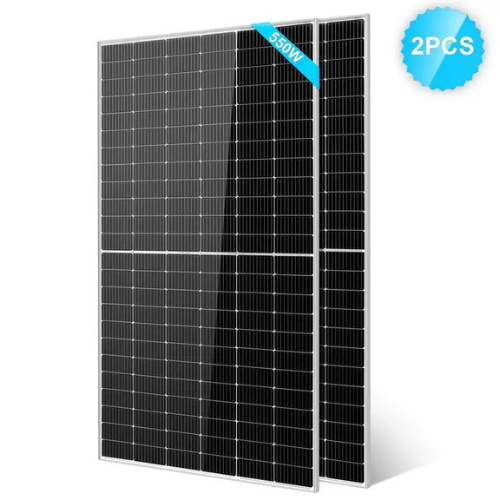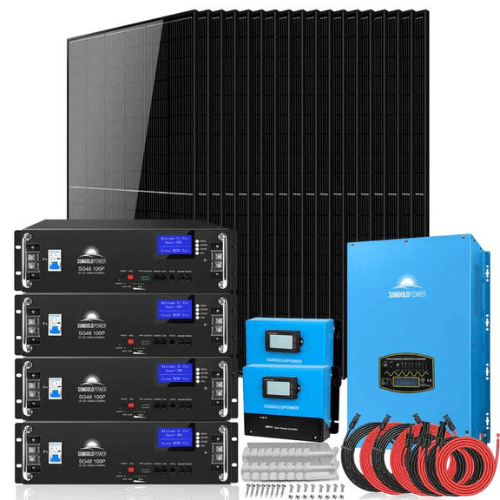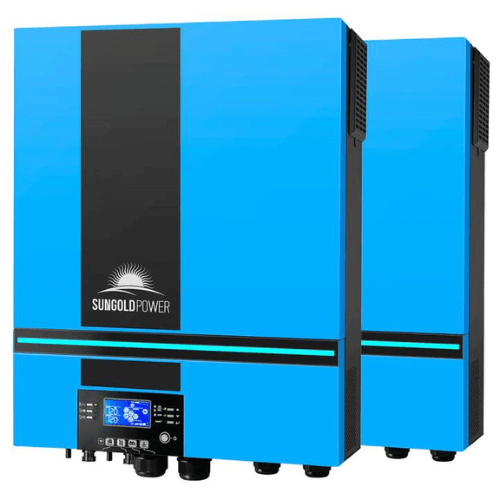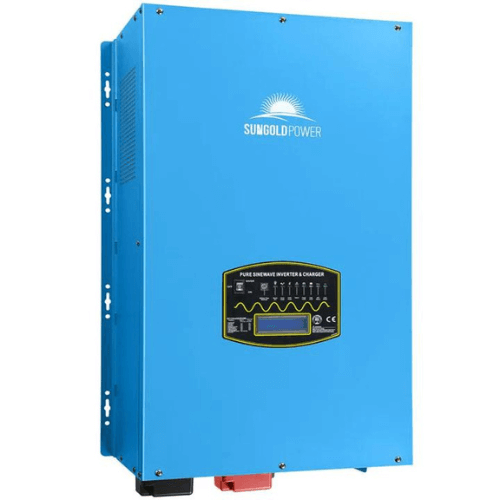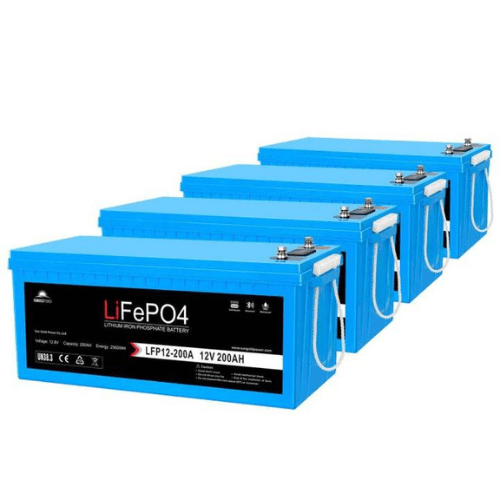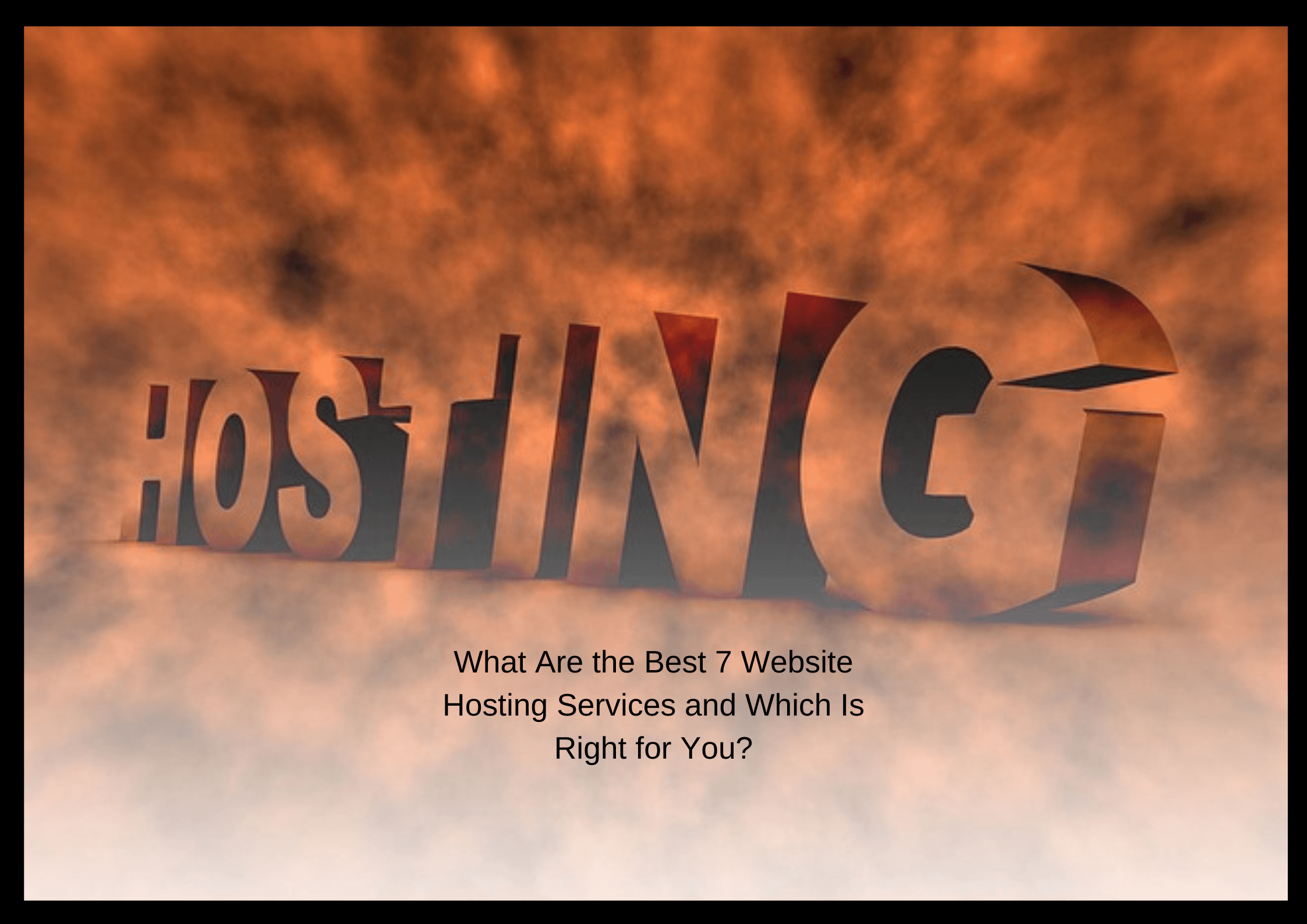As more and more people look for ways to reduce their environmental impact and lower their energy bills, solar energy is becoming an increasingly popular option. With a home solar system, you can take advantage of the abundant energy from the sun to power your home and help reduce the amount of energy you rely on from the grid.
What is a Home Solar System?
A home solar system is an array of solar panels that are installed on your roof or in your yard to capture the energy from the sun, convert it into electricity, and send it to your home. Each solar panel is made up of multiple photovoltaic (PV) cells, which generate electrical energy when exposed to sunlight.
The solar energy from the PV cells is then sent to an inverter, which converts it from direct current (DC) to alternating current (AC) before it is used in your home. The AC electricity is then sent to your home’s electrical panel, where it can be used to power your lights, appliances, and other devices.
A cottage, camper, RV, or boat can easily be powered by the sun using a SunGoldPower solar panel since it produces quiet, clean electricity. Each panel contains silicon solar cells that are incredibly efficient. Additionally, it includes a junction box with an IP65 rating, making it appropriate for marine applications. The corrosion-resistant metal frame is perfect for prolonged outside use, extending the useful life of a solar panel.
Solar kit systems offer a convenient and accessible way for individuals and small businesses to harness solar energy. These kits typically include all necessary components, such as solar panels, inverters, and mounting equipment, simplifying the installation process. While they are a practical option for those interested in renewable energy, it’s essential to choose the right kit size and quality to meet specific energy needs. Solar kits are a step toward reducing electricity bills, decreasing environmental impact, and achieving energy independence. Proper installation and maintenance are vital for optimal performance and system longevity. Overall, solar kit systems contribute to a more sustainable and eco-friendly energy future.
Sungoldpower solar inverters are ideal for off-grid systems or using AC power supply for unexpected power outages at home since they can maintain an uninterrupted power supply in the event of a power outage. These inverters are also frequently used in RV and vehicle upfitting projects, including powering lights and other appliances in an off-grid cabin. They are built-in battery chargers that refuel various battery banks using AC electricity from the grid or a generator.
Solar inverter chargers are essential for capturing solar energy and boosting system effectiveness. Electric current travels to the solar inverter when the solar panels generate electricity. The DC is subsequently changed into AC by the inverter. The AC energy is ready to be used from the inverter to power the various appliances.
A Pure Sine Wave Inverter is an integrated system that combines an inverter, battery charger, and AC auto-transfer switch. In battery mode, they transform DC power into AC power. It converts the loads to AC power and charges a battery bank when shore power or generator input power is available. The inverter will automatically switch to the DC battery source if the generator runs out if there is a problem with the shore power.
A top-notch, high-quality low frequency power inverter, the SunGoldPower Inverter Charger is designed to run your small home, business, RV system, trailer, or boat application. It is also ideal for an emergency backup supply or an off-grid setup. We offer a wide range of inverter chargers, including 2000W to 18,000W inverter chargers in 12V, 24V, and 48V single phase and split phase.
Inverter also comes with a remote control and BTS cable. A remote panel offers an easy on/off remote control for the inverters, while a battery temperature sensor helps lengthen the life of your batteries. Additionally, they have attributes like minimal idle usage and LCD display monitoring.
In comparison to a lead-acid battery, the SUNGOLDPOWER LiFePO4 Lithuim Iron battery provides greater power, is half as heavy, has a longer lifespan, and requires no maintenance. Built-in intelligent BMS, 4000+ deep cycles. With capacities ranging from 100Ah to 200Ah and voltage options of 12V, 24V, and 48V, we have products for a wide range of uses, including power storage in homes, RVs, vans, boats, golf carts, and more!
Benefits of Installing a Home Solar System
Installing a home solar system offers many benefits, including:
Lower Electricity Bills
One of the main benefits of installing a home solar system is that it can significantly reduce your electricity bills. By generating your own electricity, you can reduce your reliance on the grid and reduce the amount of money you spend on energy.
Increased Home Value
Installing a home solar system can also increase the value of your home. According to research, a home with solar panels can increase the resale value of a home by 3-4%.
Environmentally Friendly
Solar energy is a clean, renewable source of energy that does not produce any harmful emissions. By installing a home solar system, you can reduce your carbon footprint and contribute to a cleaner environment.
Tax Incentives
In many states, the government offers tax incentives and other financial incentives for homeowners who install solar panels. These incentives can help offset the cost of installation and make the transition to solar energy more affordable.
Considerations for Installing a Home Solar System
Before you install a home solar system, there are a few things you should consider:
Solar Panel Efficiency
The efficiency of your solar panels is an important factor to consider when installing a home solar system. The more efficient your solar panels, the more energy they will be able to produce. When researching solar panels, look for ones that have a higher efficiency rating and are designed to last for many years.
Cost of Installation
The cost of installing a home solar system can vary depending on the size and type of system you choose. Generally, larger systems will cost more, but they will also generate more energy. To get an accurate estimate of the cost of installation, contact a local solar installer for a quote.
Local Weather Conditions
The amount of energy your home solar system will produce will depend on the local weather conditions. If your area gets a lot of sunlight, your system will be able to produce more energy. If your area is prone to cloudy days and rain, your system may not be able to produce as much energy.
Solar Panel Orientation
The orientation of your solar panels is also important. If your panels are facing south, they will be able to capture the most sunlight and produce the most energy. If your panels are facing east or west, they will be able to capture some sunlight, but not as much as if they were facing south.
Conclusion
Installing a home solar system can be a great way to reduce your electricity bills, increase the value of your home, and reduce your environmental impact. Before you install a home solar system, consider the efficiency of the solar panels, the cost of installation, the local weather conditions, and the orientation of your panels. With the right system, you can harness the power of the sun and start generating your own electricity.
Frequently Asked Questions
Have you considered whether solar panels are the best way to power your home?
Yes, I have considered solar panels as a viable option to power my home. The potential for reduced electricity bills, environmental benefits, and energy independence make them an appealing choice for me.
What factors are influencing your decision regarding using solar panels for your home’s energy needs?
Several factors are influencing my decision regarding solar panels for my home. These include the cost of installation, available incentives, the suitability of my roof for solar, expected energy savings, and the environmental impact of reducing my carbon footprint.
Are you aware of the advantages and potential challenges of relying on solar panels for home power?
Yes, I’m aware of the advantages, such as reduced energy bills, environmental benefits, and potential financial incentives. However, I’m also mindful of potential challenges like the upfront cost of installation, variable weather conditions affecting energy production, and the need for maintenance and monitoring.
How do you perceive the long-term benefits of solar panels in terms of energy efficiency and cost savings?
I perceive the long-term benefits of solar panels as highly promising in terms of both energy efficiency and cost savings. Over time, they can significantly reduce my reliance on conventional utility power, leading to substantial savings on electricity bills. Additionally, their environmentally friendly nature aligns with a more sustainable and greener energy future.
Have you researched the different types of solar panel systems available and their suitability for your specific situation?
Yes, I’ve conducted research on various solar panel systems and their suitability for my specific needs. I’ve considered factors such as monocrystalline vs. polycrystalline panels, roof-mounted vs. ground-mounted systems, and the optimal capacity for my energy consumption. This research has helped me make an informed decision about the right solar panel system for my situation.


